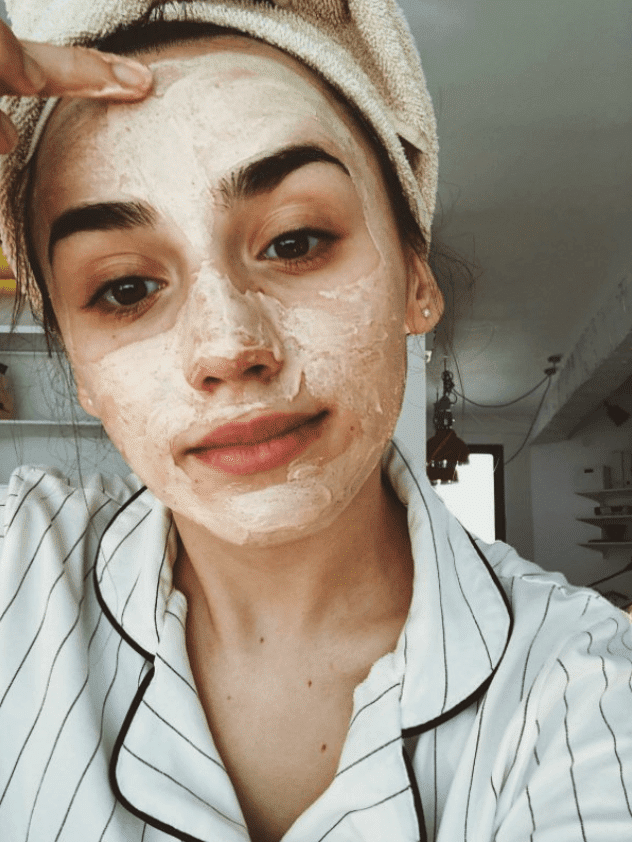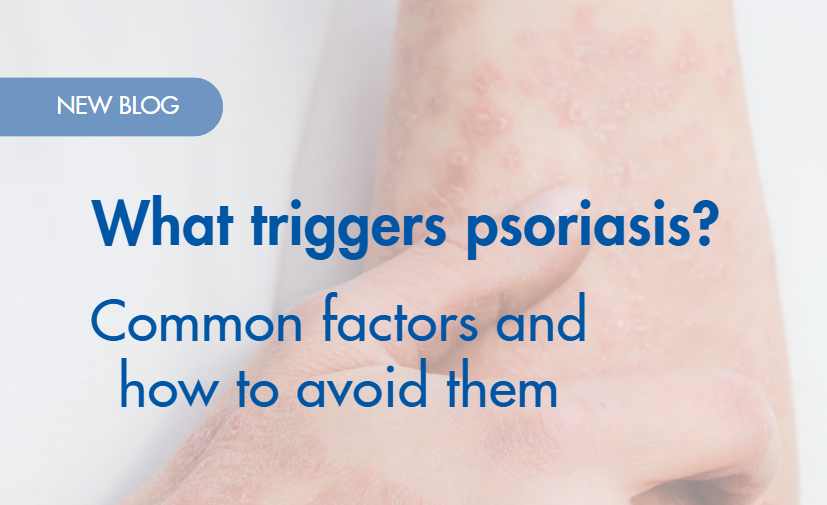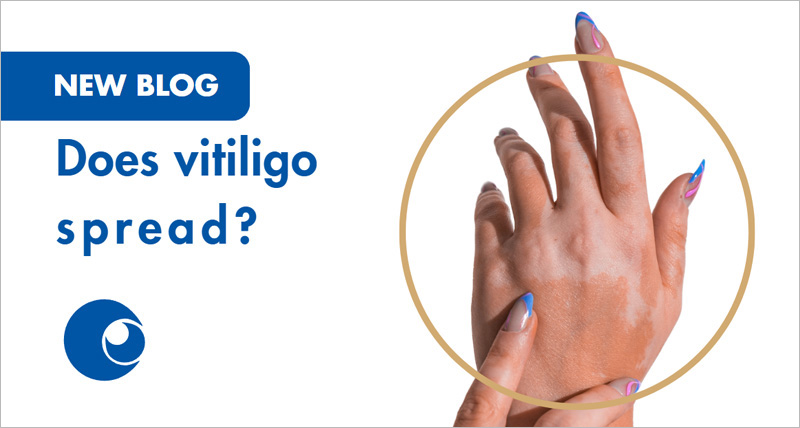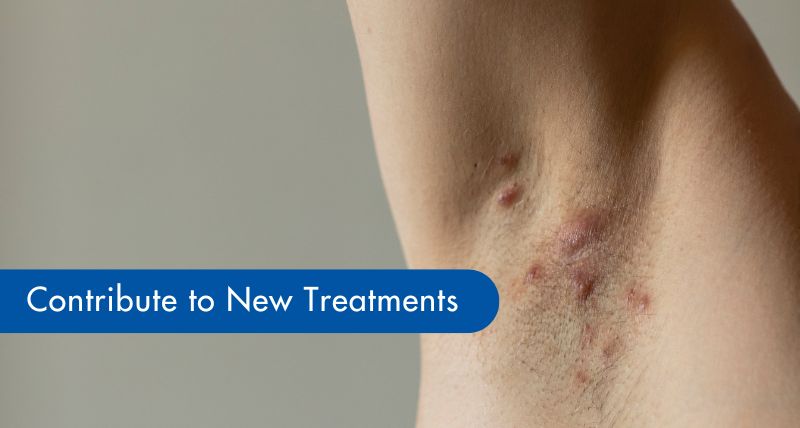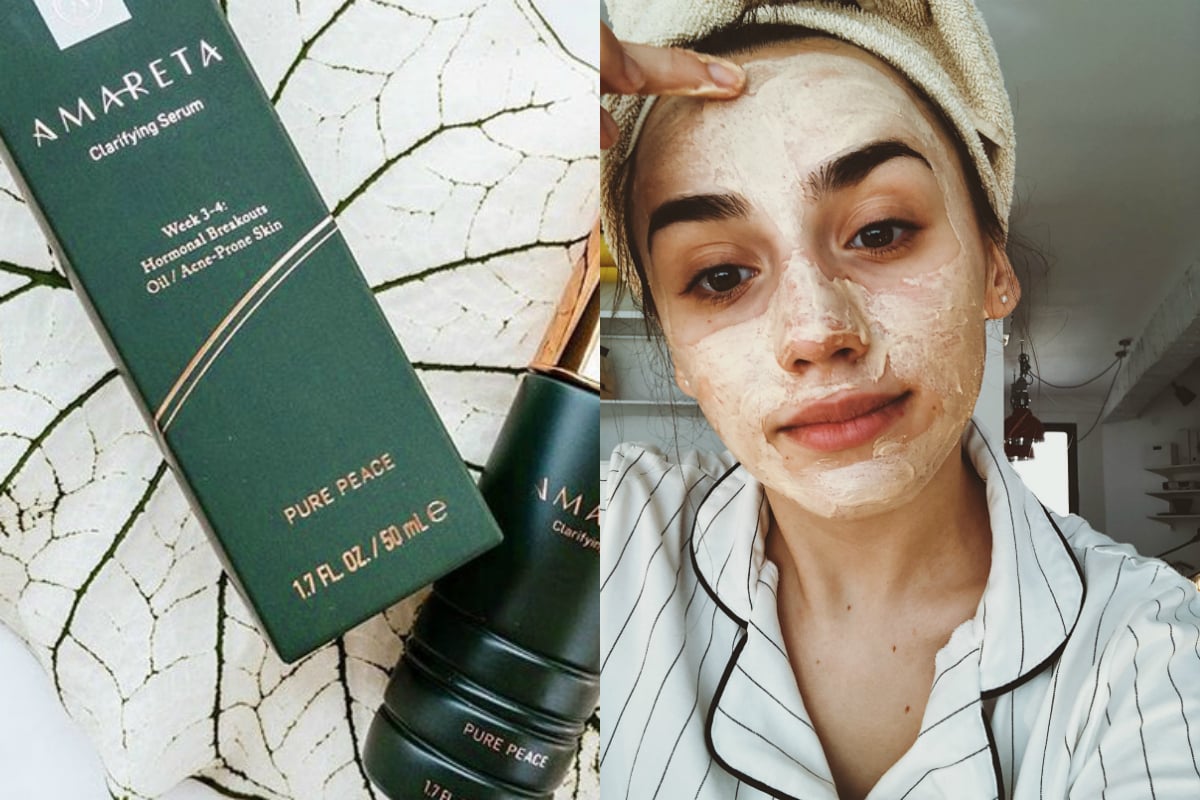
Did you know you now need period skincare?
We’re not talking vaginal moisturisers or anything to do with your bits down below. But according to a piece in The Guardian by Ellie Violet Bramley, there’s an opening in the beauty market for skincare products dedicated to managing the friendly skin issues that come with your menstrual cycle.
Although period skincare hasn’t reached Aussie shores (yet), US brands like Amreeta offer different cleansers, serums and skincare bundles based on whether you’re ovulating or bleeding. For a neat sum of around AU$150, plus shipping.
Is this cyclical approach to skincare the next big thing we should all be doing, or a load of crock?
Mamamia spoke to two dermatologists to find out.
How do your hormones (i.e. your period) affect your skin?
Let’s start with some facts.
Fact: the cycle of hormones travelling through women’s bodies can prompt changes in our skin. You’re probably most familiar with the stubborn family of pimples that pop up around your chin, jawline or hairline at roughly the same time every month. For some, it’s more of a colony of cystic acne than a family.
Dr Jo-Ann See, Australasian College of Dermatologists fellow and founder of All About Acne, said this is completely normal and “it’s not that there’s something wrong with you.”
“We know this cycle of the hormones [throughout the menstrual cycle] is a true thing, but it’s highly individual and it doesn’t mean every patient’s skin will be affected in the same way,” Dr See told Mamamia.
That said, there are two common hormone-related skin issues some women may recognise.
1. ‘Period acne’ or pimples before your period.
Not everyone gets hormonal acne, but as mentioned above, the most common hormonal skin change women experience is the delightful monthly pimple or acne flare.
According to Dr Shyamalar Gunatheesan, a private practice dermatologist with Sinclair Dermatology you could have otherwise perfect skin and still get a punctual acne flare, simply because you’re prone to them. We’re lucky like that.
“If you get the odd pimple before your period, it’s not something to worry about, but if you’re finding there’s that cycle to your acne, it’s something worth managing because there are ways to improve that flare. But, it’s something you won’t grow out of, regardless of age” she told Mamamia.
Both experts explained hormonal acne can flare at one of two times during your cycle – one week before your period (premenstrual) or during ovulation (mid-cycle).

During ovulation, the hormone oestrogen drops after the release of an egg from the ovary mid-cycle. Similarly, in the premenstrual phase between when your ovary spits out an egg and when you start bleeding, oestrogen levels are low in comparison to progesterone, which rises along with androgens (male hormones). As Dr See explained, progesterone and testosterone get your oil glands pumping and wham, up come the pimples.
As a bonus, the same oil glands will get triggered by these hormone changes every month, which explains why you’ll have pimples in one area that, just as they’ve started to die, return angier than ever.
2. Dry, sensitive skin.
Another fun thing some women may experience throughout their cycle is dry, sensitive skin.
Dr Gunatheesan said, “When oestrogen is low, your skin is a bit more sensitive and dry because oestrogen is a good plumper of collagen and hydrates the skin.”
Our skin can also be more sensitive because of the inflammation caused by those nasty pimples.
So, do you need ‘period skincare’?
If we’re talking about period skincare being a ‘cyclical skincare routine’ marketed and purchased specifically for use depending on the different phases of your cycle, Dr See is adamant the answer is… no.
“I’ve been a dermatologist for 25 years and it’s my job to look at the science behind new trends. Period tracking apps are one thing, but what ‘period skincare’ is trying to do is spin an entrepreneurial trend so you don’t use just one lot of skincare, but a whole lot of different skincare routines,” she said.
“I think it’s a bit over the top because there’s no scientific link to suggest a skincare routine can improve what your hormones are doing through the weeks.”
What about period skincare tips?
OK, so we’ve established you don’t need to shell out money on new skincare products specifically for your period (woohoo!). But you still can hack your skincare to match the issues you experience during your menstrual cycle.
Both Dr Gunatheesan and Dr See advised making practical tweaks to your routine by changing the way you use products you already own (i.e. the ones gathering dust at the back of your bathroom cabinet) or trying a few new things that can help manage any problems with as little fuss as possible.
1. Track your cycle.
A lot of women are already tracking their periods either with an app or a good old fashioned calendar. Both experts recommended paying specific attention to whether you’re a ‘period flarer’ or an ‘ovulation flarer’, and at what point in your cycle you experience any other skin dryness or sensitivity so you can plan for and around it.
Dr Gunatheesan added, “If you’re getting a consistent flare, just be aware of that vulnerable period. Little things like being extra vigilant with removing your makeup can help.”
2. Consistent skincare throughout the month.
More important than any extra strength pimple-nuking product you could add into your routine is being consistent with your skincare. Yep, that means doing all the things on all of the days.
“Consistent skincare throughout the month is the key thing. If you’re taking your makeup off, using a gentle topical retinoid or alpha hydroxy acid (AHA) one to two times a week, generally, you can change the way your dead skin is exfoliated and your sebum is produced,” Dr Gunatheesan said.
“Often women come to me and they’ve tried too many harsh products and they’ve actually impaired their skin barrier. I have a theory your body produces more ‘cappy’ sebum when your skin is dehydrated, so it’s counter intuitive.”
Continue reading article here: https://mamamia.com.au/period-acne-period-skincare/

